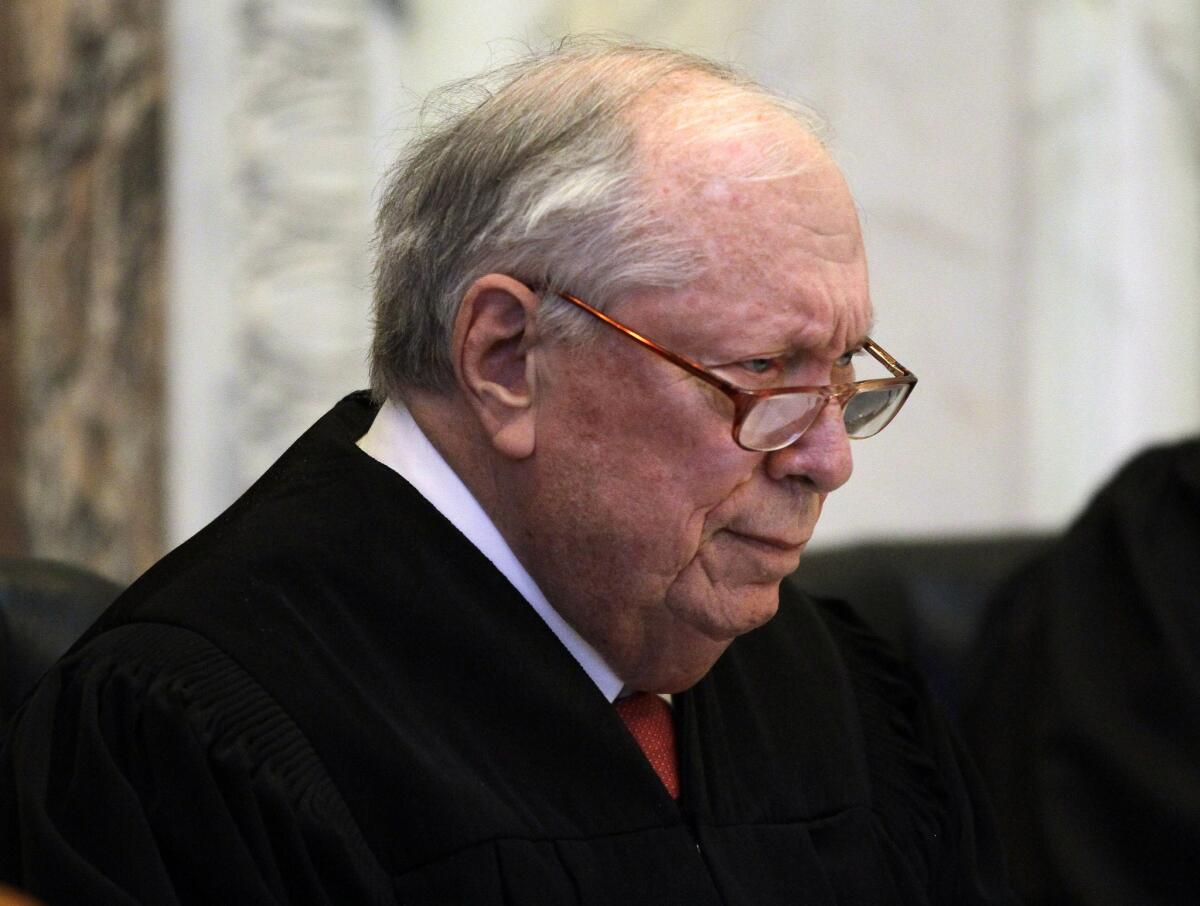Immigration law can’t discriminate against ‘habitual drunkards,’ court rules

An opinion written by U.S. 9th Circuit Judge Stephen R. Reinhardt, seen in 2010, struck down a portion of a 50-year-old immigration law that equated chronic alcoholism with poor moral character, and thus grounds for deportation.
A federal appeals court Thursday struck down part of an immigration law that made it difficult, if not impossible, for a “habitual drunkard” to fight deportation.
In a 2-1 decision, a three-judge panel of the U.S. 9th Circuit Court of Appeals said the more than 50-year-old law illegally equated alcoholism with poor moral character.
“Is it rational for the government to find that people with chronic alcoholism are morally bad people solely because of their disease?” Judge Stephen Reinhardt, a Carter appointee, wrote for the majority. “The answer is no.”
The majority said alcoholism has long been recognized as a medical disability.
“A statute targeting people who habitually and excessively drink alcohol is, in effect, targeting individuals with chronic alcoholism,” Reinhardt wrote.
Federal immigration law allows the attorney general to cancel the deportation of a non-citizen or permit the person to depart voluntarily if he or she has good moral character.
Among those the law deems immoral are immigrants who participated in genocide or torture, have been convicted of a serious felony or gambling offenses and who are habitual drunkards.
Salomon Ledezma-Cosino, a Mexican citizen who entered the U.S. in 1997, was deemed an “habitual drunkard.”
Medical records show he drank an average of a liter of tequila a day for 10 years. He also has been diagnosed with acute alcoholic hepatitis, decompensated cirrhosis of the liver and alcoholism, the court said, and he has at least one conviction for driving under the influence.
Ledezma-Cosino also has eight children — five of them U.S. citizens — and has supported his family by working in the construction industry, the court said.
The majority held that the federal law linking drunkenness with poor moral character violates the equal-protection guarantees of the U.S. Constitution.
“The theory that alcoholics are blameworthy because they could simply try harder to recover is an old trope not supported by the medical literature,” Reinhardt wrote. “Rather, the inability to stop drinking is a function of the underlying ailment.”
If the government does not appeal, the ruling will permit Ledezma-Cosino once again to seek to stay in the country or at least leave voluntarily, without being detained.
In a dissent, Judge Richard R. Clifton said the majority applied the wrong legal standard. He also argued that simply because alcoholism is a medical condition, it does not mean the sufferer always lacks a free will or can be susceptible to a moral evaluation.
Clifton observed that even Ledezma-Cosino eventually was able to quit drinking.
“If chronic alcoholics really had no ability to control their conduct, then such individuals would never be able to stop drinking,” wrote Clifton, an appointee of George W. Bush. “We know that is not the case, as Ledezma himself laudably demonstrated. Chronic alcoholics do not have to be habitual drunkards.”
Hoy: Léa esta historia en español
MORE: Get our best stories in your Facebook feed >>
Twitter: @mauradolan
ALSO
New home and restaurant concealed drug tunnel at U.S.-Mexico border, officials say
By the numbers: Zika virus in the U.S.
A glittery traffic stop: Gold-painted man arrested on suspicion of DUI, hit-and-run
More to Read
Sign up for Essential California
The most important California stories and recommendations in your inbox every morning.
You may occasionally receive promotional content from the Los Angeles Times.











